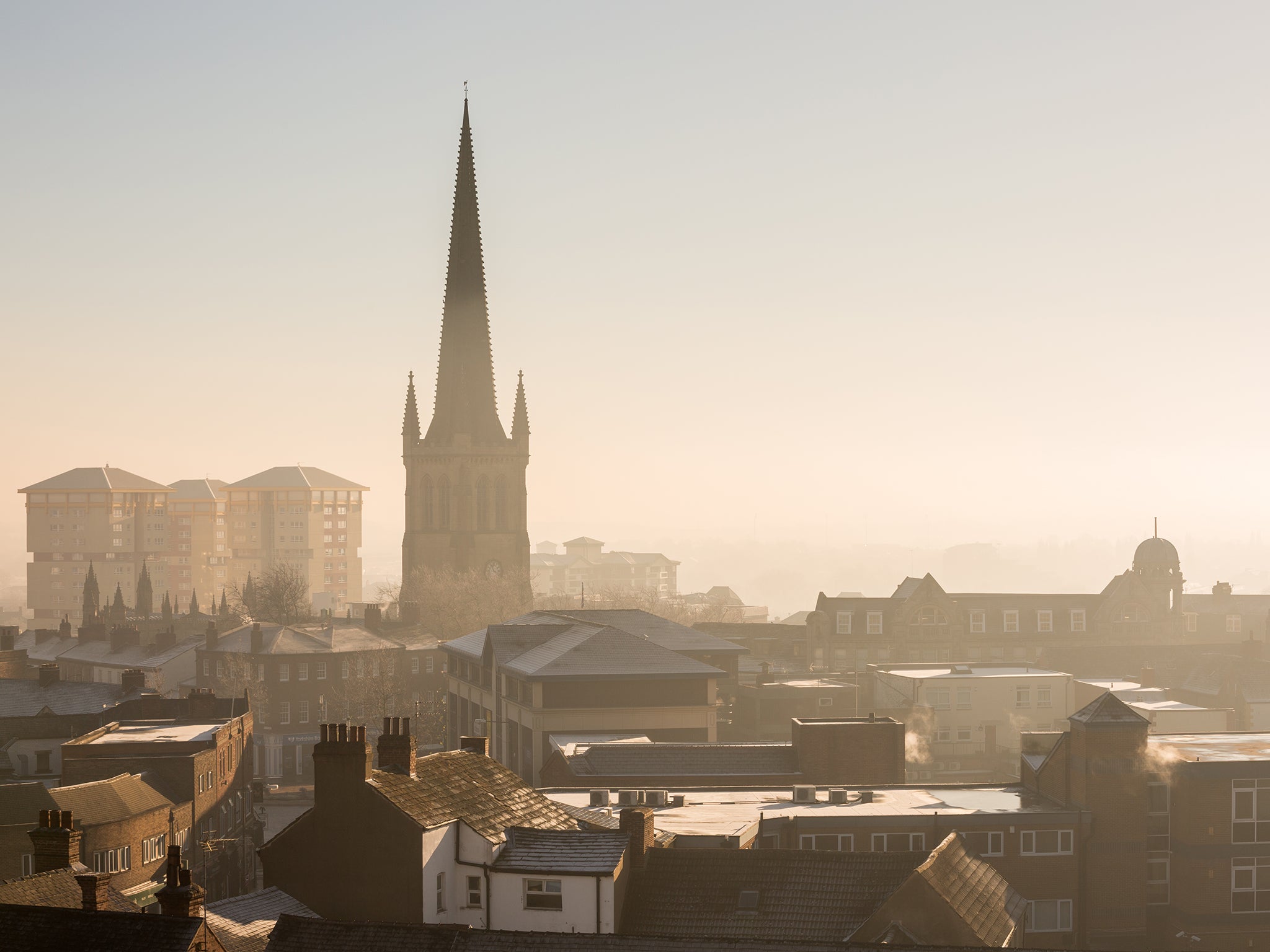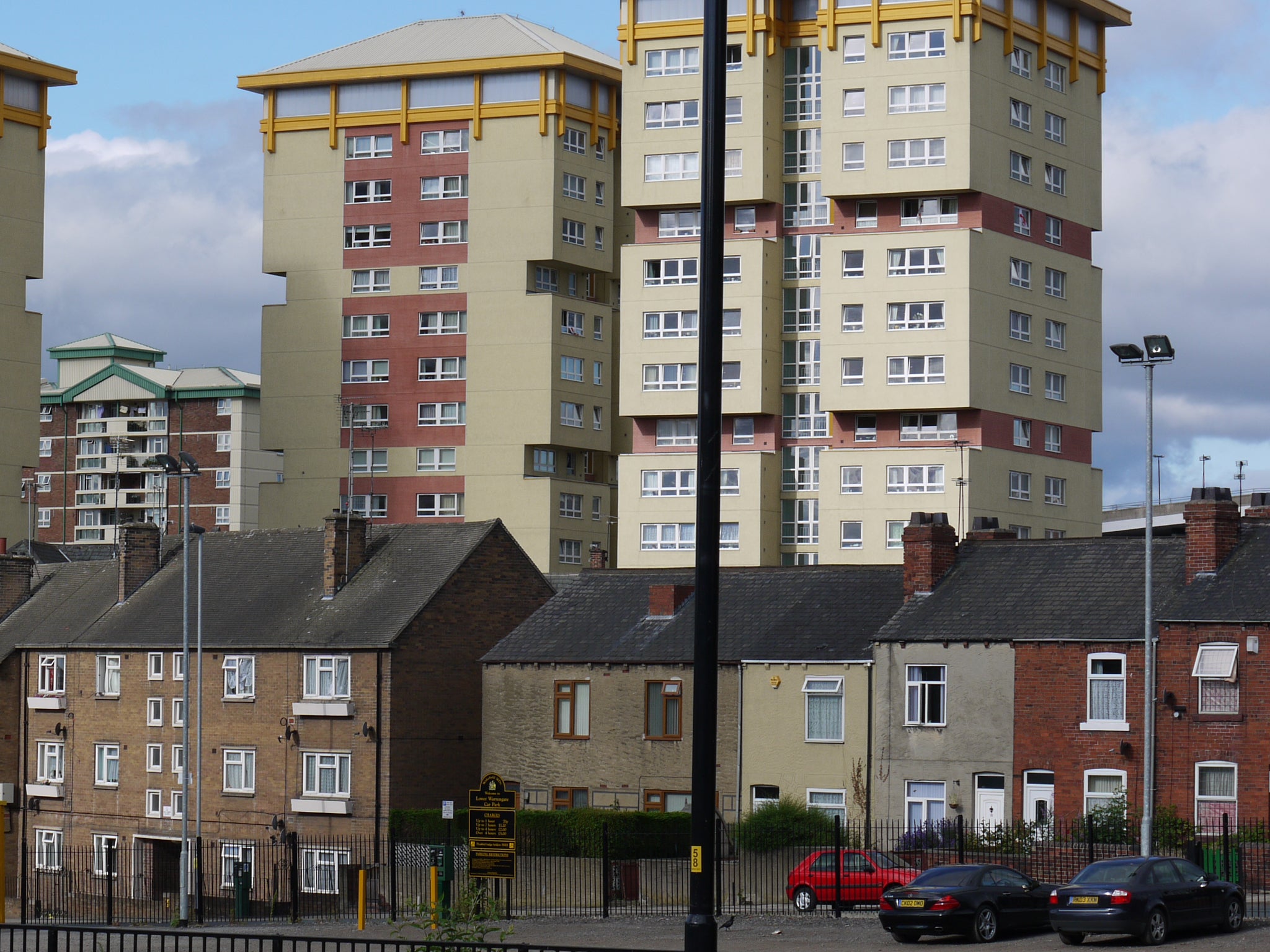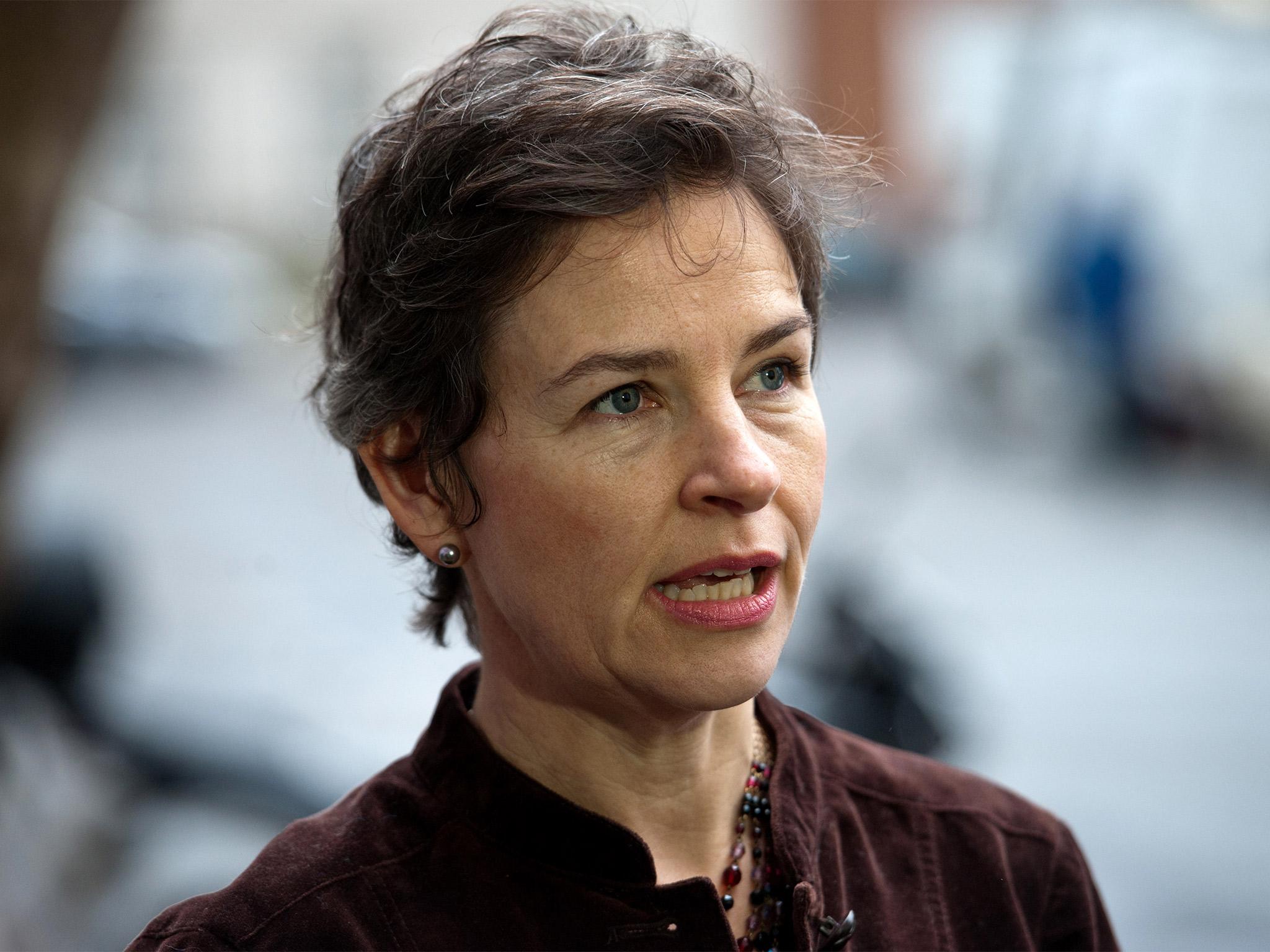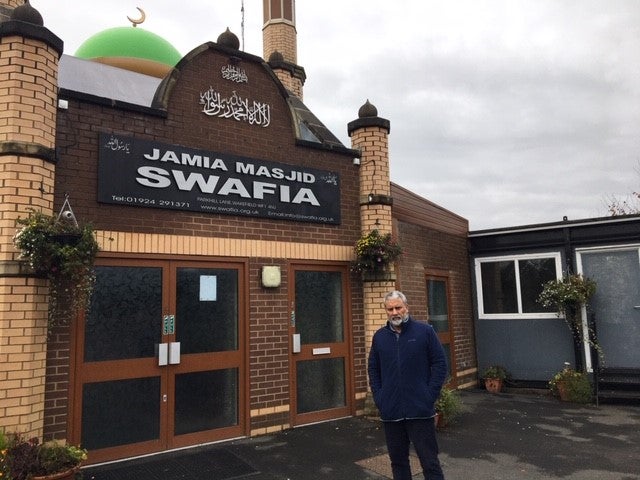None of the above: Brexit, austerity and political point-scoring leave Wakefield voters turned off from election
‘Workington man’ has been named the symbol of a must-win Tory seat, but there are many key battlegrounds across the north. The Independent visits West Yorkshire where a city MP wants constituents’ support – but not their questions about her house

Mary Creagh really – I mean, really, really – doesn’t want to talk about the price of her house.
When I ask how much it costs, the MP for Wakefield says the question is irrelevant. Instantly, the cordial conversation turns frosty. Within 90 seconds, she has ended the interview altogether.
“You’ve had 20 minutes – thank you,” she says in a voice that doesn’t entirely suggest gratitude.
I’m here in the 51-year-old’s West Yorkshire constituency because this little city – a Labour heartland with a Leaver heart – is among seats being targeted by the Tories at the election. Creagh, a dedicated Final Say-er, currently has a majority of just 2,176.
But: house prices?
Four hours earlier the mother-of-two – who was parachuted into this seat while living in Islington, widely perceived to be the spiritual home of the so-called 'metropolitan elite' – had taken to Twitter to condemn Jacob Rees-Mogg’s vile assertion that Grenfell Tower fire victims could have escaped had they shown “common sense”.
Except, in doing so, she chose to comment on the Tory MP’s home. “Lofty pronouncements from a man who drives a Rolls and lives in a £6m house,” she wrote.
The tweet may have played well online but in Wakefield city centre it was a different matter.
Here, such us-versus-them rhetoric – already a key election theme – was met with distinct Yorkshire scepticism. Here, they smelt hypocrisy. Here – in the 67th most deprived area in the country (out of 326) – they had a simple question: well, how much is our MP’s own pile worth?
She would not, it turns out, answer.
“I’m not prepared to talk about that,” she says. “My tweet is about someone who went to Eton and has probably never visited a high-rise block holding forth on what people on the 20th floor of a burning tower should have done…I think it is a legitimate comparison.”
Yes, but...
“OK, thank you. You’ve had 20 minutes – thank you. Goodbye.”
So, legitimate to talk about another MP’s home but not her own, apparently. Which may or may not have any wider significance except, in Wakefield, one phrase kept cropping in relation to the general election: they’re all as bad as one another.
Certainly, the seat's (now ex) Tory candidate had his own social media skeletons. A day after my visit, it emerges Antony Calvert once called the capital Londonistan and referred to Creagh as looking “shocking” during a TV appearance. ”Obviously the BBC make up dept don’t work on Sunday,” he wrote on Facebook. He resigned within 24 hours of the posts coming to light. More of which shortly.
For now, in the city centre, disillusionment reigns.
Austerity, Brexit (or, more accurately, lack of Brexit) and perceived hypocrisy of both those in and out of power have not created an electorate ready to be fooled by us-versus-elites or us-versus-parliament politicking. Rather, it has resulted in apathy at the entire political system.
“There is not one politician I would trust to have the integrity to put their constituents’ interests above those of themselves,” says Bea Firth, owner of Morgana & Hellraiser, an alternative clothes emporium that has stood in the city for more than 25 years. “I don’t believe in any of them.”
How will she vote? “I won’t,” says the grandmother-of-seven who is originally from Germany. “Why waste your time?”
Such comments come thick and fast. “Don’t like the Tories, can’t stand Jeremy Corbyn, won’t ever trust the Lib Dems after what they did with student fees,” reels off teacher Keeley Waddington, 31, while having her eyebrows tinted in Trinity Walk Shopping Centre. “Brexit Party? Full of Tories. I’ll vote for someone but what a miserable choice.”
Here, the Conservatives are historically disliked because of their closures of the coal mines; Labour are increasingly distrusted because of their perceived delaying of Brexit and a disquiet about the current leadership; and the Lib Dems – well, they won less than 1,000 votes last time out. They’re a fringe party.
Just one consensus truly emerges while speaking to voters: none of the above.

Wakefield itself, it should be said, is a city much improved over the last 20 years.
Its main train station has been rebuilt and a new shopping and dining quarter developed. The Hepworth art gallery, opened in 2011, has been a huge success, while a new 500-student performing arts college and theatre is currently going up in the regenerated Westgate area. Plans are soon to be submitted for an all-new rugby ground for Wakefield Trinity Wildcats.
Yet it has also been hit devastatingly hard by austerity.
School funding has been cuts by £69m since 2015, violent crime has trebled as police numbers have fallen and both homelessness and food banks are on the rise, according to Creagh. Its once thriving market has closed.
As seats go, it should, by rights, be an easy Labour win. It’s been red since 1932. But Brexit, as with so many other places, has shaken things up. People here voted 66 per cent to leave the EU and the Tories now think it could be a potential swing.
That is perhaps why, indeed, it was here, in a speech to West Yorkshire Police officers, where Boris Johnson declared he would “rather be dead in a ditch” than extend the UK’s Brexit date beyond 31 October.
“So, why isn’t he?” asks mechanic and father-of-two Matthew Greenwood in Trinity Walk.
What? Dead in a ditch? “Yeah,” replies the 36-year-old. “Why isn’t he? Why is he still running the country? If I made a promise like that at work and didn’t deliver – fired, mate.”
Matthew Taylor, browsing in the Riding Shopping Centre, agrees. “I voted leave because I want the UK to be in control of its own decisions,” the 32-year-old NHS worker explains. “You may disagree but those were my reasons. But why did Boris Johnson support leave? Because he wanted to be prime minister. He did it for his career.”
Yet, if the views on Johnson are tough, Jeremy Corbyn gets it full-barrelled as well.
“I’ve always voted Labour but not this time, not for him,” says Taylor. “Terrorist sympathiser, isn’t he? And a Brexit obstructer. How could he be trusted as prime minister?”
One chap enjoying a cigarette outside Hogarths bar puts it more bluntly. “London socialist,” he says. “Do anything for the working class apart from a day’s work.”

Creagh herself is no fan of her leader either.
She quit the front bench when he was elected and has repeatedly called out his inner circle on antisemitism. Why should people vote for a potential prime minister she, herself, clearly can’t abide?
Well…” she begins, making absolutely zero attempt to deny her dislike of Corbyn. “I think the problems of poverty, of low wages, of lack of investment in infrastructure in schools, in houses and in local services will only be fixed by a Labour government.”
Such investment is much needed, according to Sajid Hussain, a minibus company owner and president of the Swafia Mosque.
As he shows me around the latter, he talks of knife crime, NHS waiting lists and youngsters who cannot get jobs but dare not get into the debt required to attend university. He refers to youth clubs that have shut down and grass verges that are no longer cut. Drugs are becoming rife, he says.
“But no one in government is talking about these things because all they do is talk about Brexit,” the grandfather-of-four sighs. “All this energy wasted while people suffer.”
As we sit warming our socked feet by a radiator, I mention that both parties say they are planning public spending sprees. He looks at me sceptically. He’s 52 and has seen a lot of governments. “How much of that will come to Wakefield?” he asks. “How much will come north?”

Plenty if Antony Calvert is to be believed.
Despite being born and raised in the city, the Tory is not in town while I am. Instead, we speak down a phone. “Try the Kashmiri Aroma for dinner,” he tells me. “Best curries in West Yorkshire, mate.”
He’s keen – in a laddish, jovial sort of way – to get the message across that the Tories will get Brexit done and open the spending taps: more police and more regeneration all round, essentially. But he’s loose on detail. Which is probably fair enough. So’s BoJo, after all.
As it happens, Calvert, a 41-year-old property consultant, is a friend of Rees-Mogg. I ask him about those egregious Grenfell comments.
“He apologised for them being interpreted as they were,” he says. “There is not a malicious bone in that man’s body. In the heat of interviews sometimes you misspeak.”
So, make what you will of that.
Make also what you will of historic social media comments that emerge the next day. Racist and sexists posts surfacing from Facebook show that he referred to London as Londonistan, said he thought he saw “Col Gaddafi on the tube”, and insulted Creagh’s appearance.
Although the missives date back to 2010, he steps down soon after they are brought to light. "I am not prepared to countenance a situation where the Conservative Party is even marginally distracted from the key themes of this election," he says in a statement which sounds like, actually, it was probably written at Conservative HQ.
Either way, what ultimately may be most telling is that another key local party member is less than confident the Tories can win the seat anyway.
Nadeem Ahmed leads the blues on Wakefield’s Labour-run city council but he is known for independence of mind and candour of speech. He, too, has noticed apathy engulfing his home city.
“You know what it is?” he says. “This is a Labour city. I don’t know why. White-working class and Asian families, they should be natural Tories – strong family values, aspirational, law and order. But they’re Labour through and through here. You can’t go on the doorstep without hearing about Margaret Thatcher and the textile mills closing. People have long memories.”
But this is a target seat. Could Brexit not swing it?
“Personally,” he says, “I think a lot of people here just won’t vote. I think they’ve had enough of it all.”
Join our commenting forum
Join thought-provoking conversations, follow other Independent readers and see their replies
Comments
Bookmark popover
Removed from bookmarks